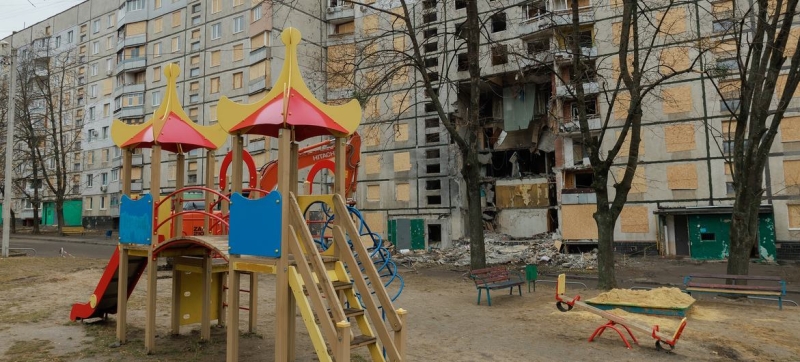
Children’s playground in Kharkiv Ukraine: UNICEF alarmed by consequences of “ongoing attacks” for children Peace and security
The United Nations Children’s Fund (UNICEF) expressed deep concern over the ongoing attacks on populated areas in Ukraine and their devastating consequences for children.
Continuing attacks
“Continuing attacks on densely populated areas, resulting in the death and injury of many people, including children, are deeply alarming,” said Munir Mammadzade, UNICEF Representative in Ukraine.
Three children were reportedly injured in a missile strike on a residential building in Poltava, while at least four others have been injured in Kramatorsk, Sumy and Sinelnykove in recent days.
The violence has left children with not only physical wounds, but also deep psychological trauma. “These brutal attacks not only cause physical and psychological harm, but also affect children’s development,” Mammadzade stressed.
Schools damaged
Two schools were reportedly damaged in Odessa, one of which received impact-resistant film from UNICEF, preventing serious internal damage. Two other schools in Nikopol and Zaporozhye were also damaged.
UNICEF reiterated its call to protect children and the civilian infrastructure they depend on, such as schools, health and social facilities, and the energy system, from attacks. “For the sake of every child, every civilian, it is necessary to avoid the use of explosive weapons in densely populated areas,” Mammadzade said in a statement.
He also stressed the need for a sustainable peace in which children can recover from the war and have the opportunity to receive an education and build their future.
Strain on the health system
Fighting has intensified on the front lines in the Donetsk and Kharkiv regions, leading to mass displacement of the population. According to the Health Cluster, in the first two weeks of January alone, more than 1,600 people, including children, fled their homes, with families in high-risk areas receiving mandatory evacuation orders.
In response to the current situation, Health Cluster partners, in collaboration with local authorities, continue to deploy mobile medical teams to provide essential health services, as well as mental health and psychosocial support.
In January alone, such teams provided medical care to 578 people in two specialized transit centers in the Kharkiv and Dnipro regions.
The Health Cluster, led by the World Health Organization (WHO), coordinates the efforts of more than 900 partners worldwide to meet health needs in humanitarian emergencies situations.
